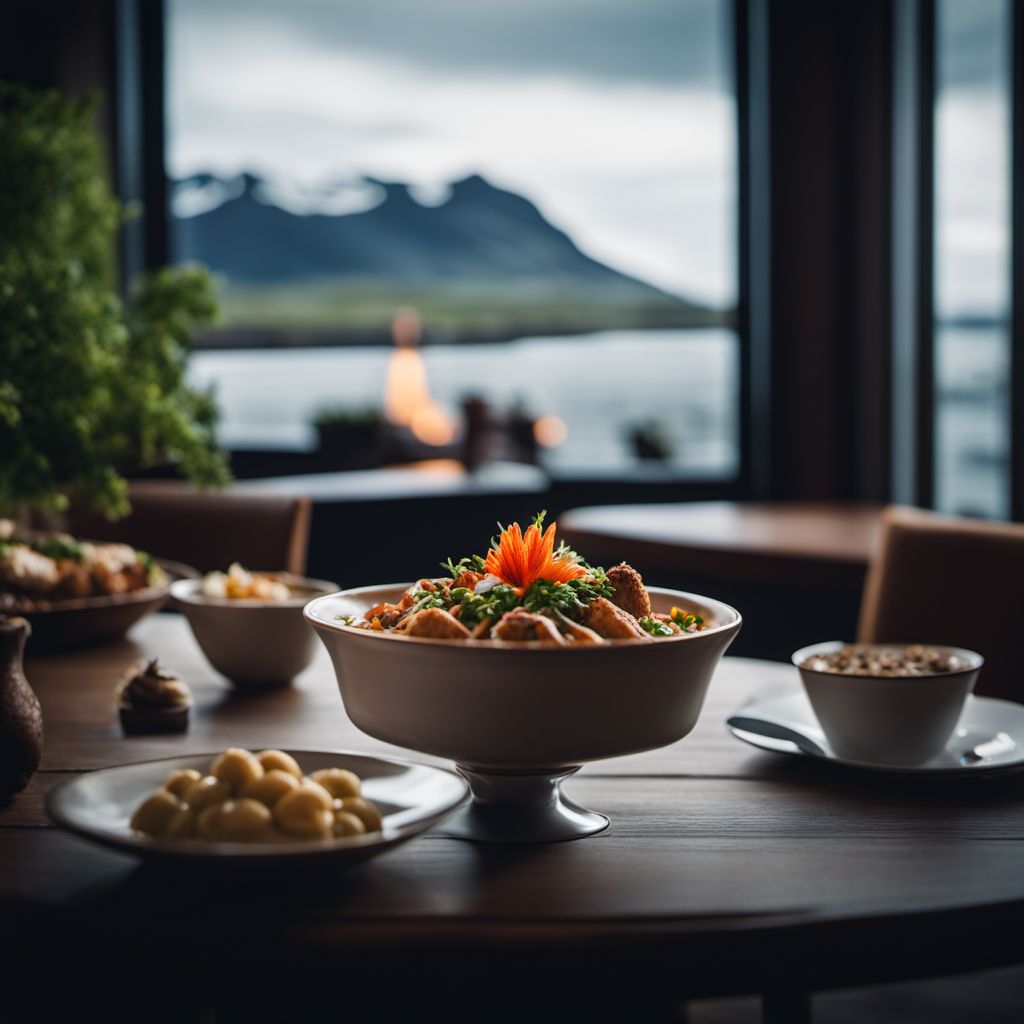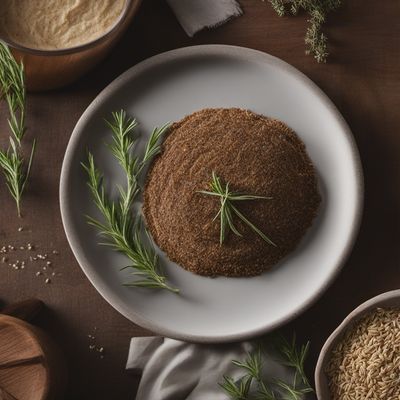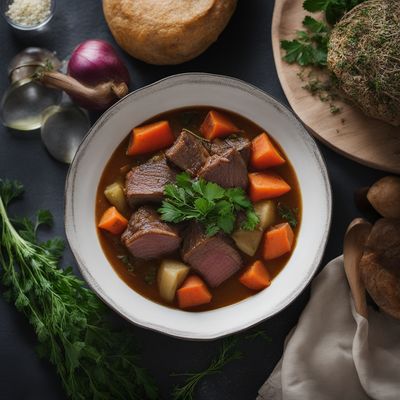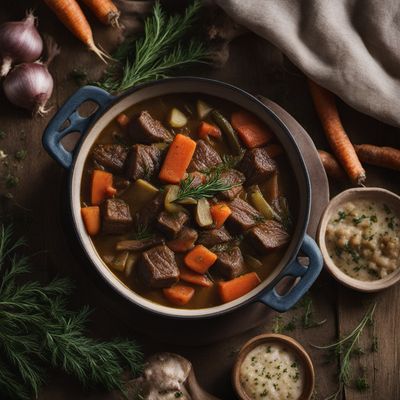
Cuisine
Icelandic cuisine
Icelandic cuisine is known for its simplicity and use of fresh, local ingredients. The cuisine is heavily influenced by the country's natural resources, with many traditional dishes featuring fish, lamb, and dairy products. Icelandic cuisine is also known for its use of preserved foods, such as pickled herring and fermented shark. Other traditional Icelandic dishes include hangikjöt (smoked lamb), plokkfiskur (fish stew), and skyr (a type of yogurt).
Typical ingredients
Fish (cod, haddock, salmon), Lamb, Dairy products (skyr, cheese), Potatoes, Carrots, Turnips, Onions
Presentation and garnishing
Icelandic dishes are often served simply, with minimal garnishes or sauces. However, some dishes, such as plokkfiskur, are traditionally served with boiled potatoes and turnips.
Icelandic cuisine is known for its use of preserved foods, such as pickled herring and fermented shark. The country is also home to a number of unique ingredients, such as skyr and hangikjöt. Icelandic cuisine has also been influenced by the country's history of isolation and self-sufficiency, with many traditional dishes reflecting the need to preserve food for long periods of time.
More cuisines from this region...
Swedish cuisine, Norwegian cuisine, Finnish cuisine, Danish cuisine, Sami cuisine
History
Icelandic cuisine has a long history, dating back to the country's Viking settlers. The cuisine has evolved over time, with influences from Norway and Denmark. Traditional Icelandic dishes often reflect the country's rural heritage, with many dishes featuring simple, hearty ingredients that are easy to prepare.
Cultural significance
Icelandic cuisine is an important part of the country's cultural heritage, and is celebrated at festivals and events throughout the year. The cuisine is also an important part of the country's tourism industry, with many visitors coming to Iceland to sample traditional dishes and learn about the country's culinary traditions.
Health benefits and considerations
Icelandic cuisine is generally considered to be healthy, as it is based on fresh, local ingredients. However, some traditional dishes, such as hangikjöt and fermented shark, can be high in salt and fat. The cuisine's emphasis on meat and dairy products can also pose risks if not consumed in moderation.
Icelandic cuisine dishes Browse all »

Rúgbrauð
Rugbraud
Rúgbrauð is a traditional Icelandic rye bread that is dense, chewy, and packed with flavor. It is typically made with a combination of rye flour, wheat flour, and sourdough...

Hangikjöt
Icelandic smoked lamb
Hangikjöt is a traditional Icelandic dish that is made with smoked lamb. It is a flavorful and hearty dish that is perfect for a cold winter day.

Icelandic Hot Dog
The Icelandic Hot Dog is a popular street food in Iceland.

Heimablídni
Home Hospitality
Heimablídni is a traditional Icelandic dish that is typically served at homecomings and family gatherings. It is a simple and delicious dish that is sure to please a crowd.

Flatkaka
Flatkaka is a traditional Icelandic bread made with rye flour, wheat flour, salt, and water.

Kjötsúpa
Lamb soup
Kjötsúpa is a traditional Icelandic dish that is typically served during the colder months of the year. It is a hearty and flavorful soup that is sure to warm you up on a chilly day.

Thorramatur
Icelandic feast
Thorramatur is a traditional Icelandic dish that consists of a variety of preserved meats, fish, and dairy products.

Icelandic Fish and Chips
Icelandic Fish and Chips is a traditional Icelandic dish that consists of battered and fried fish served with a side of French fries. The dish is known for its crispy and...
Icelandic cuisine recipes Browse all »

Icelandic Flatkaka with a Twist
Savory Delight: Reinventing Icelandic Flatkaka

Icelandic Lamb Stew with Root Vegetables
Savory Icelandic Lamb Stew: A Taste of Traditional Home Cooking

Sichuan-Inspired Spicy Prawns with Icelandic Twist
Fiery Icelandic Prawns: A Spicy Fusion Delight

Smoked Lamb with Traditional Icelandic Flavors
Savor the Smoky Delights of Icelandic Hangikjöt

Icelandic-inspired Cheese Pancakes
Savory Cheese Pancakes with a Nordic Twist

Icelandic-style Fish Stew with Skyr
Nordic Fish Delight: Creamy Skyr Fish Stew

Ábrystir - Icelandic Sweet Pancakes
Fluffy Delights: Icelandic Sweet Pancakes

Icelandic-inspired Lamb Meatballs with Root Vegetable Stew
Nordic Lamb Delight: Hearty Meatballs in Root Vegetable Stew

Icelandic-style Corn Dogs
Skrúður með Korni: Icelandic Twist on Corn Dogs

Icelandic-Inspired Hearty Lamb Stew
Sjávarfangsríkur Lambakjötssúpa - A Taste of Icelandic Sea and Land

Icelandic-style Tomato and Bread Soup
Hearty Tomato and Bread Soup with a Nordic Twist

Whale Meat Delight
Oceanic Delicacy: A Wholesome Whale Meat Recipe